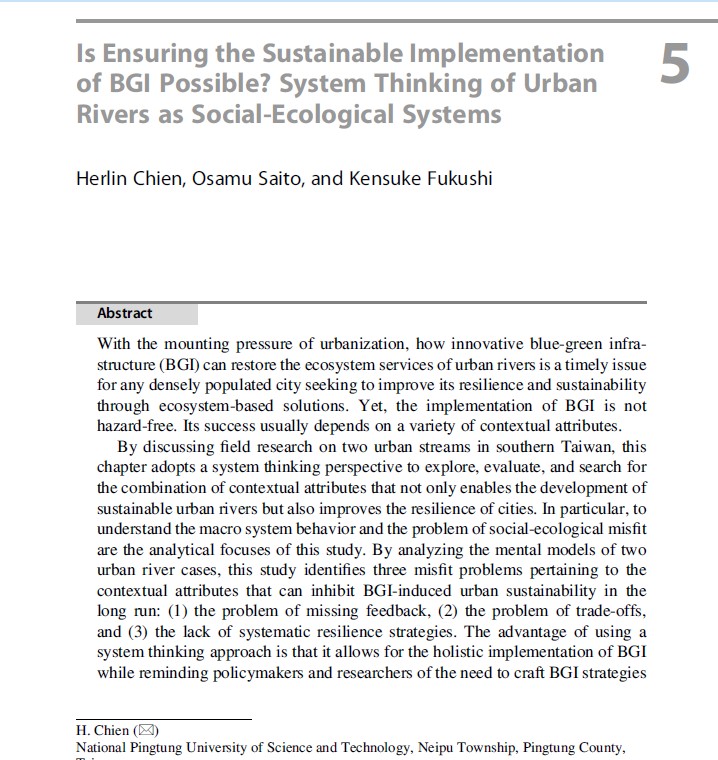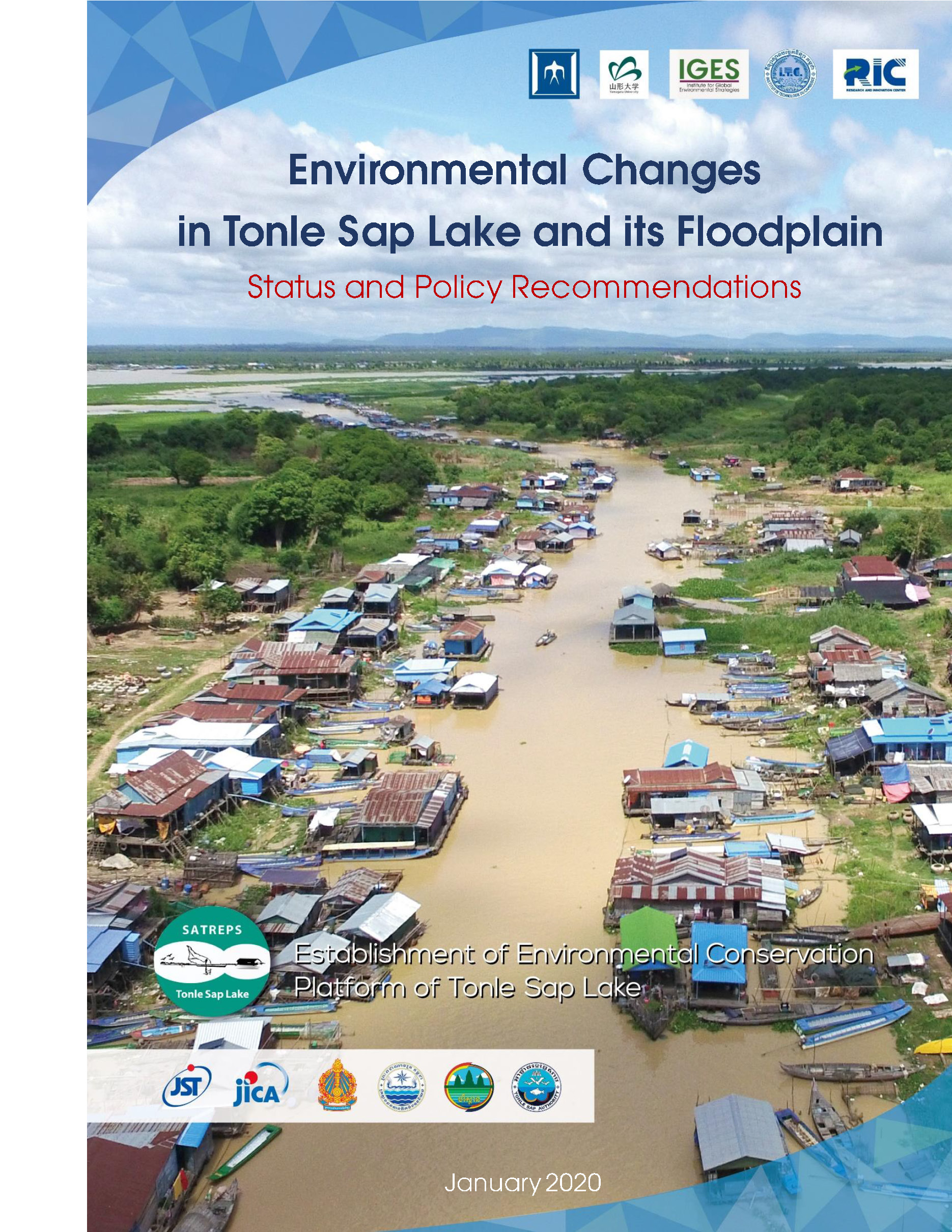In Blue-Green Infrastructure across Asian Countries: Improving Urban Resilience and Sustainability
With the mounting pressure of urbanization, how innovative blue-green infrastructure (BGI) can restore the ecosystem services of urban rivers is a timely issue for any densely populated city seeking to improve its resilience and sustainability through ecosystem-based solutions. Yet, the implementation of BGI is not hazard-free. Its success usually...








